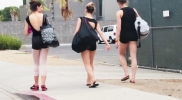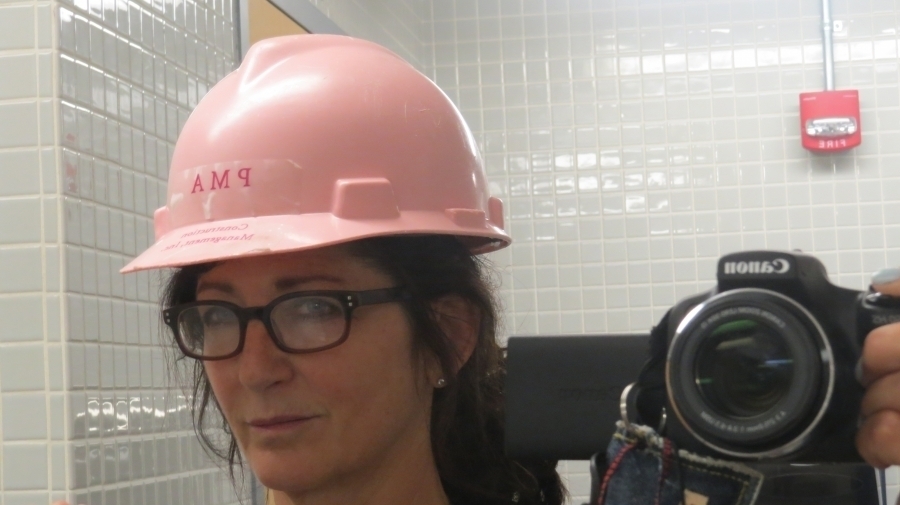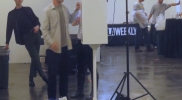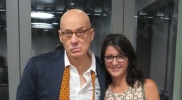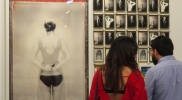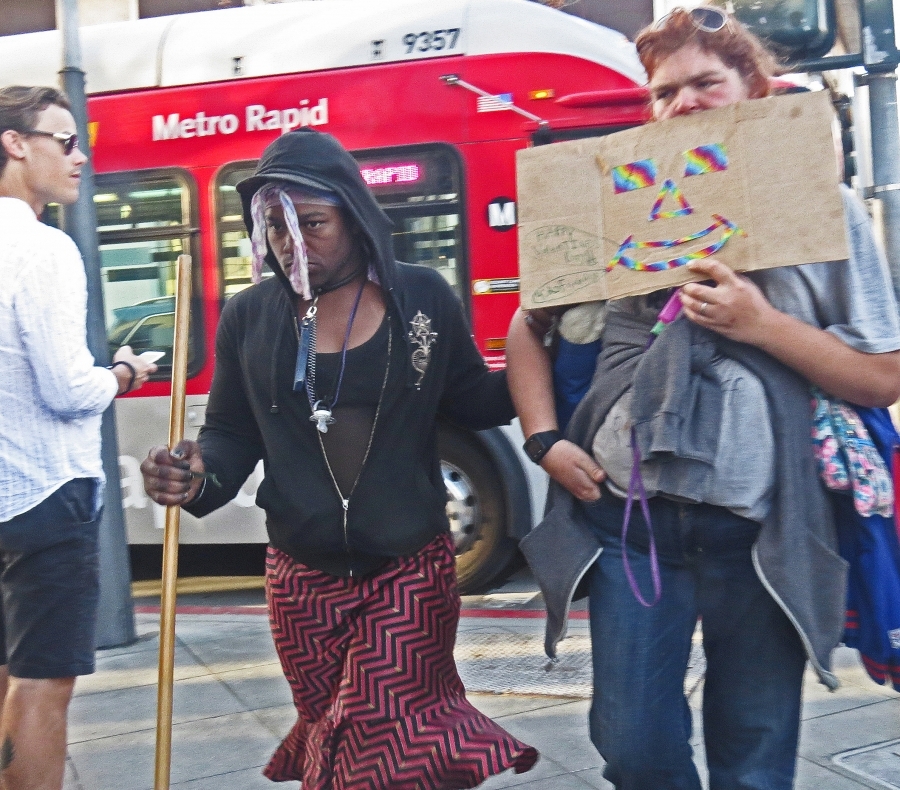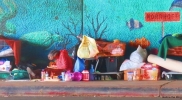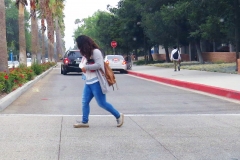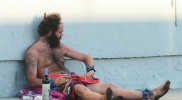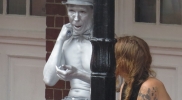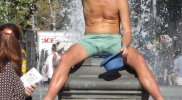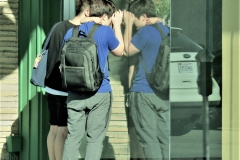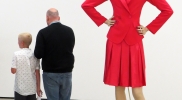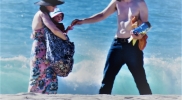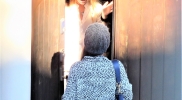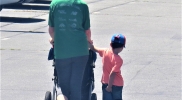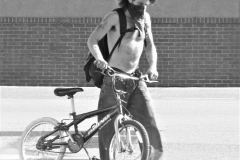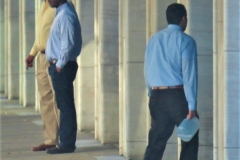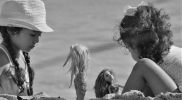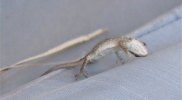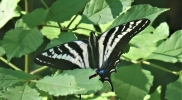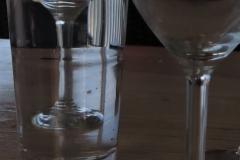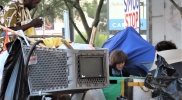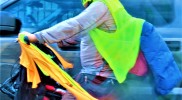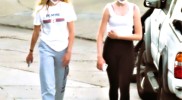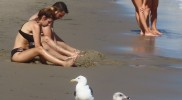|
|
Best Trivia - Health & Happiness
|
Favorite Trivia – HEALTH & HAPPINESS
|
|
“Your looks looked after you. Look after them.”
Thom Gunn – San Francisco Streets
|
|
Doctor: “I don’t recommend running to anyone except a pickpocket.”
|
|
Sundial: Let others tell of Storms or Showers. I only mark the Sunny hours.
Marilyn Johnson – The Dead Beat
|
|
“A day without sunshine is like, you know, night.”
Steve Martin
|
|
waiting room: “A place where the doctor hopes you’ll catch something from the other patients.” – Changing Times
Leonard Louis Levinson – Webster’s Unafraid Dictionary: 5,000 Defiant Definitive Put-Downs
|
|
“Out of the strain of the doing, into the peace of the done.”
Julia Woodruff
|
|
happiness: “The art of forgetting the things you can’t have.” – Schopenhauer
Leonard Louis Levinson – Webster’s Unafraid Dictionary: 5,000 Defiant Definitive Put-Downs
|
|
“Protect me from what I want.”
Jenny Holzer
|
|
“When the mind is in a disturbed state, health cannot exist, even as is the case with the body.” [Philippicae., III, 4.]
Cicero
|
|
“Happy is he who doth pass length of life in sureness of hope
and doth feed his
Heart on gladness sprung from a conscience clear” [Chorus: Antistrophe 1]
Prometheus Bound – Aeschylus (trans. by George Thomson)
|
|
“Best trust the happy moments. What they gave
Makes man less fearful of the certain grave.
And gives his work compassion and new eyes.
The days that make us happy make us wise.”
John Masefield, Biography (Christopher Morley’s Book of Days for 1931 [March 6])
|
|
“… you could go out on the street and ask people just two questions: Do you love your job? and, Are you really happy? If a person can comfortably answer yes to both these questions, he or she is probably going to avoid heart trouble and most other health problems as well, because risk for most illnesses concerns these two basic issues.
“There is a concept in Ayurveda known as dharma. To be in dharma means to know what you’re here for. It means you’ve discovered the purpose of your life. You see, there are no extra pieces in the universe. Everyone is here because he or she has a place to fill, and every piece must fit itself into the big jigsaw puzzle. Indeed, the universe would be incomplete if it weren’t for the fact that you happen to be here. And for any single thing to happen in this whole universe, you and everyone else must take part in it.
“Of course, the concept of dharma encompasses much more than just job satisfaction Dharma takes in all the activities of our waking state of consciousness, because we are destined to fulfillment, and part of that destiny is doing that work which gives us the most satisfaction.”
Restful Sleep: the Complete Mind/Body Program for Overcoming Insomnia – Deepak Chopra, M.D.
|
|
“In the operating theater, both the patient and the surgeon must be anesthetized. The one to shield him from pain, the other to enable him to do his work without the emotional response that is natural to a sensitive man.”
Richard Selzer – Diary
|
|
“I walked till I was warm, and then I walked for happiness.”
Enid Bagnold [author of National Velvet] – A Diary Without Dates
|
|
“A chemist comes back after lunch and notices a man leaning against the shop wall.
“‘He came in for some cough syrup,’ explains the assistant, ‘but we didn’t have any in stock so I had to give him a powerful laxative instead.’
“‘What good is that going to do?’ asks the chemist. ‘Giving him a laxative isn’t going to stop him coughing.’
“‘Well, it has,’ says the assistant. ‘He’s too frightened to cough now.'”
|
|
“The noblest art is that of making others happy.”
P.T. Barnum
|
|
“If of thy mortal goods thou art bereft,
And from thy slender store two loaves alone to thee are left,
Sell one, and with the dole
Buy hyacinths to feed thy soul.”
Sadi – Gulistan
|
|
“Think only of the past as its remembrance gives you pleasure.”
Antonia Fraser – Must You Go: My Life with Harold Pinter
|
|
“Men’s Happiness and Misery depends altogether as much upon their own Humour, as it does upon Fortune.” [LXII]
The Moral Maxims And Reflections of the Duke De La Rochefoucauld
|
|
“You can find tranquility with something to love, something to do, and something to hope for.”
David Baird – A Thousand Paths to Tranquility
|
|
alimony: “What makes an unhappily married woman happily unmarried.”
Leonard Louis Levinson – Webster’s Unafraid Dictionary: 5,000 Defiant Definitive Put-Downs
|
|
“Exercise, study, and love—that is the way to really live.”
David Baird – A Thousand Paths to Long Life
|
|
“I want to sing like the birds sing, not worrying about who hears or what they think.”
Rumi
|
|
“If you are in a bad mood, go for a walk. If you are still in a bad mood, go for another walk.”
Hippocrates
|
|
“If you want to lift yourself up, lift up someone else.”
Booker T. Washington
|
|
“Centuries ago the witch women of the Carpathian mountains used bread mold and soil fungi on open wounds to cleanse and cure them. Today their old magic still works; the molds and fungi continue to save lives and the most familiar one is penicillin.”
Maria Leach – The Soup Stone: The Magic of Familiar Things
|
| “To invite anyone as a guest is to be responsible for his happiness all the time that he is under your roof.”
Brillat-Savarin – Physiologie du goût
|
| “Once you’ve walked on red carpet, you can never go back to concrete.”
Alicia Singh Gee’s mother – Where the Peacocks Sing
|
| “Chewed some Tulu gum presented me by Mrs G. Conceived the idea that the mastication of this chunk of illimitable plasticity—a dentiferous tread-mill so to speak—would act on the salivial glands to produce an excess of this necessary ingredient of the digestive fluid and thus a self acting home made remedy for dyspepsia would be obtained. Believe there is something in this as my dyspeptic pains are receding from recognition.” [July 14, 1885]
The Diary of Thomas Alva Edison
|
|
“The Japanese say if you sneeze once, you are being praised; if you sneeze twice, you are being maligned; if you sneeze three times, you have caught a cold.”
Maria Leach – The Soup Stone: The Magic of Familiar Things
|
| “Suffering has an absolute relation to the suffering individual—it cannot be easily mediated by . . . ‘privilege.’ If it could, the CEO’s daughter would never starve herself, nor the movie idol ever put a bullet in his own brain. Early on in the crisis [Covid 19 pandemic], I read a news story concerning a young woman of only seventeen, who had killed herself three weeks into lockdown, because she ‘couldn’t go out and see her friends.’ She was not a nurse, with inadequate PPE and a long commute, arriving at a ward of terrified people, bracing herself for a long day of death. But her suffering, like all suffering, was an absolute in her own mind, and applied itself to her body and mind as if uniquely shaped for her, and she could not overcome it and so she died.”
Intimations – Zadie Smith
|
| “If you’ve got your health, you’ve got everything.”
Tony C. Martino (a.k.a., my Dad)
|
| The poisonous monotony of daily life effaces all days and obliterates memories, unless some out of the ordinary event serves as an antidote.
Reza Kianian – World Cinema: Diary of a Day
|
| “Is anyone anywhere happy? No, not unless they are living in a dream or in an artifice that they or someone else has made. For a time I was lulled in the arms of a blind optimism with breasts full of champagne and nipples made of caviar.”
Sylvia Plath – The Unabridged Journals of Sylvia Plath
|
| “Nothing flatters a man as much as the happiness of his wife; he is always proud of himself as the source of it.”
Samuel Johnson
|
“I sat, a solitary man,
In a crowded London shop,
An open book and empty cup
On the marble table-top
While on the shop and street I gazed
My body of a sudden blazed;
And twenty minutes more or less
It seemed, so great my happiness,
That I was blessed and could bless.”
W.B. Yeats
|
| “In India we have a saying: ‘Always look down, never look up,’ he said. When you are trying to determine where you stand in life, don’t look upward at the rich people, the people with everything. Look downward at the people who have nothing, those begging on the street, those living in the slums. There’s no end to looking up and feeling badly. And if you try to spit upward it only falls down upon your face. Only by looking downward can you understand your dharma.”
Ajay Singh to Alicia Gee – Where the Peacocks Sing (Alicia Singh Gee)
|

Covid-19 Greetings
|
| “Wragg was one of those little people whom nature seems to have designed in order to convince us that things might be worse . . .”
Gerald Kersh – The Scar (Ellery Queen’s Mystery Magazine)
|
|
“The highwayman cries,
Your purse or your lives!
The doctor, far worse,
Takes your life and your purse.”
|
|
Blood Pressure Readings:
Systolic (top number) – refers to the pressure in the arteries when the heart beats
Diastolic (bottom number) – refers to the pressure in the arteries between heartbeats
American Heart Association’s Blood Pressure Chart:
Normal Blood Pressure
Systolic: Less than 120
Diastolic: Less than 80
Prehypertension Blood Pressure
Systolic: From 120 to 139
Diastolic: From 80 to 89
High Blood Pressure (Hypertension) Stage 1
Systolic: From 140 to 159
Diastolic: From 90 to 99
High Blood Pressure (Hypertension) Stage 2
Systolic: 160 or higher
Diastolic: 100 or higher
Hypertensive Crisis (Emergency care needed)
Systolic: Higher than 180
Diastolic: Higher than 110
|
“Come what come may, time and the hour runs through the darkest day.”
Shakespeare – MacBeth
|
|
“The trouble with the holistic view [of medicine] is that it’s not true that all the elements of our body work in harmony . . . We’re not a harmonious anything. I think it’s better to see the body as a battleground with different factions, different armies. It’s not deliberate. It’s not as smooth-running and united as we might like to imagine . . . I think that there is a lot of joy in realizing that you are old enough to die and that it doesn’t matter right now if you do everything perfectly. I’m not going to stop having my vodka tonic just because it’s a bad thing to do in somebody’s accounting.”
Barbara Ehrenreich – Interview by Hugh Delehanty, AARP Bulletin, Setpember 2018
|
|
Pursuit of happiness: “All that the Constitution guarantees is the pursuit of happiness; you have to catch up with it yourself.”
Evan Esar – Esar’s Comic Dictionary
|
|
Weep: “Laugh and the world laughs with you. Weep and you spoil your makeup.”
Evan Esar – Esar’s Comic Dictionary
|
|
“I feel like I ought to stop writing for a while now and renew my emotional reservoir with new experiences—to remember in tranquility.”
Tennessee Williams Notebooks
|
|
“Optimism: A cheerful frame of mind that enables a tea kettle to sing though in hot water up to its nose.”
Anonymous
|
|
“The trouble about happiness is that it is a purely selfish sensation. The innocent, the simple, and the selfish can be happy even amid general unhappiness. But those who are fully conscious will always be aware of the misery of the others, and of the too great price paid for their own good fortune.” [October 12, 1944]
Stephen Spender – Last Autumn of the War: September—October 1944
|
|
“The first wealth is health.”
Ralph Waldo Emerson
|
|
“Life is short. I don’t care about the floor. I take vitamins; they drop; they roll under the refrigerator. I don’t pick them up. I have five years of vitamins under the refrigerator. I’ll probably come home one night and find a six-foot cockroach in Adidas saying, ‘I feel good!'”
Elanye Boosler (That’s Really Funny)
|
“We are told the touching anecdote of Colonel Romanelli, who put an end to his life in Naples because the Duchess C. had left him. ‘I would gladly kill my rival,’ he said to his servant, ‘but it would make the duchess too unhappy.’” [January 27, 1828]
Stendhal – A Roman Journal
|
“‘The thing about bulimia,’ she [Princess Di] said to Martin Bashir, ‘is your weight always stays the same, whereas with anorexia you visibly shrink. So you can pretend the whole way through.’ Not entirely. The press had started to notice how unwell she seemed. Daily Mirror photographer Kent Gavin had a picture withheld by the paper that showed just how haunted she looked.”
Tina Brown – The Diana Chronicles
|
|
“If you were to squeeze me and wash,
squeeze me and wash,
squeeze and wash me,
and I foam,
again and again,
like bitter-leaf
left out too long to wither,
you would not squeeze
the bitterness out of me.”
Ifi Amadiume
|
|
“If you want to make everybody happy play poker badly.”
David Baird – A Thousand Paths to Good Luck
|
|
“Better never trouble Trouble
Until Trouble troubles you;
for you only make your trouble
double-trouble when you do.
And the trouble—like a bubble—
That you’re troubling about,
May be nothing but a zero
With its rim rubbed out.”
David Keppel – Trouble
|
“A man tells his friend, ‘I was feeling so depressed the other day I decided to commit suicide by taking an overdose of aspirin.’
‘Oh dear,’ says his friend ‘So what happened?’
‘Well,’ says the man, ‘after I’d taken a couple I began to feel a bit better.'”
|
“If you want to witness total, 100 percent lack of control, come with me on a childhood excursion to the movies. The movies. Now, there’s a place to really pig out. It’s dark. You feel completely safe opening and eating as many candy bars as time will allow… When we would go to summer matinee movies, my sister Rebecca would buy ten boxes of Flicks chocolate drops… I am mortified to admit that I also bought ten candy bars for a single feature. I recall carefully analyzing this horrendous amount of chocolate in my hands, mentally measuring how long each bar would last. I had to have enough for the whole movie… I wanted something sweet in my mouth through the entire film. I shudder to think of that now, yet I never sit through a film as an adult without my mouth watering for some chocolate. I think of it almost constantly, from the moment the lights first dim… I can’t concentrate on the movie. I think of possible ways to get out and sneak some candy. I begin to hate Allen, who sits there totally oblivious of my growing desire, totally free of the compulsion for a candy bar.”
Rosemary Green – Diary of a Fat Housewife: A True Story of Humor, Heartbreak, and Hope
|
“‘You will receive 23 doses of radiation, each lasting 90 seconds. The radiation will be administered to your right breast and axilla. We have calculated on the computer the exact amount of radiation required. The statistic is 95 percent that with these treatments your breast cancer will not recur.’
“I am lying on a metal table. My head rests in a wedge of styrofoam where my name is written big with pencil. Underneath my knees, there is a stuffed pillow like a sandbag. I am wearing a yellow hospital johnny with three armholes. My left breast is covered. My right arm is raised and my breast is bare, a half-moon scar winding around the right nipple. I stare at the blue ceiling. Pasted on the ceiling is a yellow sign: ‘Do not look into the laser.’ Two technicians work over me.
“‘Lie completely still, do you hear? We will do all the moving.’
“The female technician is plump, with big breasts pushing against her white uniform. The male technician wears rimless glasses, has a pasty complexion and does not smile. He leans over me, marking my chest with three green dots. The female technician reaches for the machine, pulling its huge gray arm over my head. There is an empty black space in the machine: in it, she places a plastic square with fifty holes. Then the two technicians leave the room.
“‘Considering the alternatives, the side effects are minimal.’
“I am alone. The lights go out. The metal table I am lying on moves back and forth, back and forth, until it settles under the gray arm of the machine. I close my eyes and wait for the high pitch. I count to myself: one, two. Then, the buzzing sound. The sound is like hundreds of bees. It is as if they are buzzing through the plastic holes pointed at my breast. The machine is like a baby sucking the honey—the milk—from my breast. The sucking gets louder, and the baby is growing stronger in me, sucking me dry. Slowly I feel I am disappearing into the gray area of the machine.
“‘You will begin to notice a reddening of your right breast, like a sunburn. It will itch. Your right breast will either become bigger than the left one, or smaller. We can’t predict.’
“There is no pain, ever. Just the buzzing. I smell it as it comes out—not like gas or wires burning, but the slow shrinking of my flesh. Pain would be easier. I will die like this: half naked, slowly, never sure exactly when. I don’t know where it’s coming from, the radiation. I cannot move or the rays will miss—eat into the wrong place: stomach, lung, ovary.
“‘You can put your arm down. You can cover up your breast. You can get up now. Tomorrow, same time.’
“Tomorrow. Same. The room. Back and forth. The gray arm. The buzzing. The smell of my own death.” [May 1980]
Carol Dine – Ariadne’s Thread
|
Kovrin: “Like Polycrates, I am beginning to be alarmed at my own happiness. It appears to me strange that from morning to night I only experience joy; I am filled with joy and it smothers all other feelings. I do not know what sadness, grief or dullness is… Quite seriously, I’m beginning to be perplexed.”
The Black Monk: “Why? Is joy a superhuman feeling? Ought it not be the normal condition of man? The higher a man is in his intellectual and moral development, the more free he is, the greater are the pleasures that life offers him. Socrates, Diogenes and Marcus Aurelius knew joy, and not grief. The apostle says: ‘Rejoice always.’ Therefore rejoice and be happy.”
Anton Chekhov – The Black Monk
|
“A doctor tells a patient, ‘I’m sorry but you’ve only got two weeks to live.’
‘OK,’ says the man. ‘Could I have the last week in July and the first week in August?'”
|
| Cystic Fibrosis:
“A defective protein caused by the cystic fibrosis mutation interrupts the flow of salt in and out of cells, causing the mucus that’s naturally present in healthy people to become dehydrated, thick, and viscous. This sticky mucus builds up in the lungs, pancreas, and other organs, causing problems with the respiratory, digestive, reproductive, endocrine, and other systems. In the lungs, the mucus creates a warm and welcoming environment for deadly bacteria… It’s progressive, with no cure, which means it gets worse over time.”
Mallory Smith – Salt In My Soul: An Unfinished Life
|
|
Ask Marilyn
By Marilyn vos Savant
“Say you have a coughing spell while eating. People invariably offer you a drink of water. Does this really help?”
—Dan Cowles, Cumming, Ga.
“At the back of your throat are two ‘pipes.’ One (the esophagus) leads to your stomach; the other (the tracheal) leads to your lungs. If the coughing is caused by food dawdling in your esophagus, a drink of water may help wash it down. But if it’s caused by food in your trachea, water will just get in your way of coughing it out. Regardless, even if you stop coughing, any bit of food that gets down into your lungs can cause a serious problem and needs prompt medical attention.”
|
| “Quote in the paper about cancer patients. It said ‘The people who do well create a place in their mind and their spirit where they are well, and they live from that place.'”
Sue Klebold – A Mother’s Reckoning: Living in the Aftermath of Tragedy
|
| “From out of the entrance to the hospital come a variety of out-patients: hobbling with sprained ankles, hopping with broken legs in plaster; shuffling coronary cases, amputees on crutches. Across the road two small children imitate each patient’s different movements.” [September 19, 1974]
Ian Breakwell’s Diary 1964-1985
|
| “Joy has its sorrows as sorrow has its joys.” [Mephistopheles]
Goethe – Faust, trans. Alice Raphael
|
| “I don’t regret for a single moment having lived for pleasure. I did it to the full, as one should do everything that one does… I feel that not to be ashamed of having been punished is one of the first points I must attain to… Then I must learn how to be happy Once I knew it, or thought I knew it, by instinct. It was always springtime once in my heart. My temperament was akin to joy. I filled my life to the very brim with pleasure, as one might fill a cup to the very brim with wine.”
Oscar Wilde – De Profundis
|
| “Fearful thoughts arise most commonly due to our tendency to dwell in the past or invent the future. ‘If this bad thing that happened a year ago happens again, what will I do?’ We worry. With the future always unknown, the fearful mind is free to create a horror-show of catastrophes, each leading to the next in a snowball of ever-growing panic. There is no end to unchecked fear; as we get older and feel more vulnerable in the world, fear in its myriad forms can become a chronic companion that renders old age a living hell. . .
“When we become aware that fear is present, we bring whatever clarity, quiet, and attention we can to the thoughts(s) that may be prompting the fear . . . It is the mental tendency to cling that creates anxiety, suffering, and fear, and once we’re able to identify what we are attached to—a certain standard of living, say, or a body that does not change—we are able to take the first steps toward freeing ourselves, regardless of the particular difficulty. . .
“You can free yourself from worrying about the past and from anxiety about what’s to come in the future . . . the sea of what-ifs . . . by fully entering the present moment. . . Everything around you—maybe it’s a palm tree, dripping water, cars honking, people racing past you—everything feels ecstatic when you free yourself into the moment.
“You recognize your interconnectedness, and all these things in a moment can become mystical doorways for the soul. In this state, you can’t worry about the past or the future, and you can’t worry about ‘me,’ because you can no longer find a separate ‘me.’ In the moment, we become free from the Ego’s desires and open to the Soul. We break the time-binding and interrupt the Ego melodrama. The soap opera takes a commercial break for a message from our sponsor: God.”
Ram Dass – Still Here: Embracing Aging, Changing, and Dying
|
| Email to Lauren Slater from Bostonshrink@mindspring.com:
“What Oakley [Anne] found, and this, of course was before our cultural love affair with hormones and biochemistry, was that the higher a woman’s ambivalence and distress during pregnancy, the less likely she was to have a poor postpartum outcome. In Oakley’s 1970’s world, when psychodynamics prevailed over chemistry, ambivalence, depression, even psychosis during pregnancy indicated a woman in preparation for her new role, and this woman, who essentially did her postpartum adjustments ahead of time, was all set psychologically by the time the baby was born. Oakley found women who were happy and excited during their pregnancies were often more shocked and let down when the real baby emerged, and it wasn’t all sweetness.” [October 16, 1999]
Lauren Slater – Love Works Like This: Travels Through a Pregnant Year
|
| “Friend who knew I often turned to art in times of trouble brought me art books and new sketchbooks to tempt me, but it was impossible for me to open them. Wearing bright colors made me feel physically ill… The long evening walks I took with our neighbors in the cliffs surrounding our home provided my only relief.”
Sue Klebold – A Mother’s Reckoning: Living in the Aftermath of Tragedy
|
| [Enid Bagnold worked as a VAD (Voluntary Aid Detachment) at the Royal Herbert Hospital, Woolwich]
“. . . poor Palmer, who has a piece of metal somewhere in his brain and is never seen without one long hand to his aching head. . .
“‘They won’t take it out; too risky. Seen my X-ray picture?'”
“‘No.’
“‘You look at it. Right in the middle of the brain. Seems funny that if I say I’m willing to risk it, why they shouldn’t be.’
“‘You’re willing to risk it?’
“‘I’m only nineteen! What’s the good of my head to me! I can’t remember the name of the last hospital I was at . . . ‘
“Ah, these hurried conversations sandwiched between my duties, when in four sentences the distilled essence of bitterness is dropped into my ear!”
Enid Bagnold [author of National Velvet] – A Diary Without Dates
|
|
“When I say my mother had multiple sclerosis, people don’t know what I mean. They think it’s something that comes and goes and stays with you into old age. But that’s not what happened. She lost control of her bladder and peed in a bucket next to the couch. I would empty the bucket into the toilet. She shook so hard she could barely lift her head and sat all day watching a small black and white television. I remember wondering why she didn’t have a large TV . . . I was eight when she got sick and thirteen when she died . . . I have pictures of my mother before she was sick and after. I can see how her face became hollow and ghostly, her high cheeks sinking against her jawbones, the redness in her eyes and her lips contrasting sharply with her pallor. I remember her tears, which were cold, running down her cheeks and onto mine as I kissed her and made up another excuse to leave the house.” (Note 12: My mother’s type of MS is much less common today following the advent of rug treatments in the mid-nineties.)
Stephen Elliott – The Adderall Diaries
|

Comments are closed.
|
|




